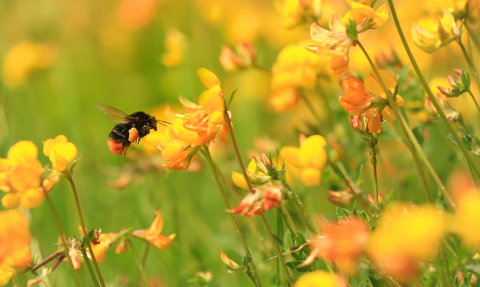
© Jon Hawkins Surrey Hills Photography
Our pollinators are dying out...
The good news is that, together, we can do something about this.
Donate to help our pollinators now
Now is a crucial time for our insects. It is vital for us too.
If insect decline continues at the current pace in 100 years there will be far fewer insects left.
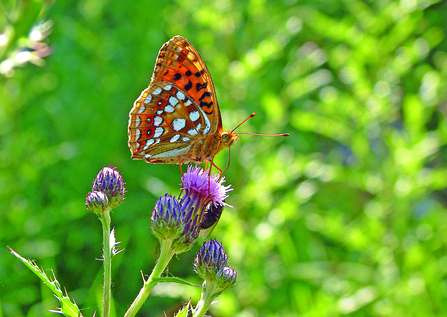
High brown fritillary
Here in Cumbria, species-rich grasslands and wildflower meadows are crucial to the survival of pollinators. But in 50 years, this habitat has declined by more than 97%.
Yes, by 97% in just 50 years.
Only through taking action will we help to reverse this trend and reduce further loss.
Please will you make a donation to help restore and create species-rich and diverse habitats to benefit our pollinators?
Thank you.
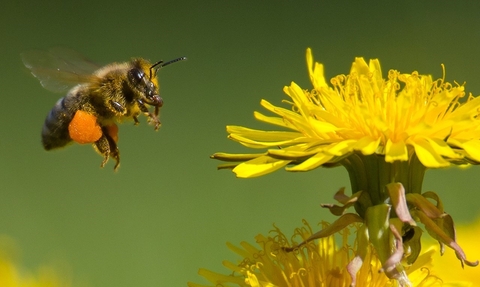
Bee flying to a Dandelion © John Hawkins.
Donate to help pollinators
If we and the rest of the back-boned animals were to disappear overnight, the rest of the world would get on pretty well. But if the invertebrates were to disappear, the world's ecosystems would collapse.President Emeritus of The Wildlife Trusts
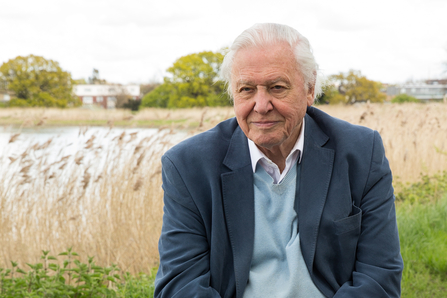
Sir David Attenborough, London Wildlife Trust, Woodberry Wetlands © Penny Dixie
Over the next three years your gift will make it possible to:
- Restore wildflower and species-rich meadows by working with land owners, managers and farmers to ensure 75ha of green space is better managed and create 35ha of good pollinator habitat.
Click to read more about what your gift will make possible:
- Create ‘plant highways’ so pollinators may travel through Cumbria’s landscape.
- Ensure the wildflower habitats we look after on our nature reserves continue to flourish and be healthy environments for a wide range of species.
- Identify the right places to create new areas of species and flower-rich habitat across Cumbria and train volunteers and communities. This will make improvements at the heart of where people live.
- Encourage more people to garden with wildlife in mind, at every opportunity.
- Create a new plant nursery where we will, with the help of volunteers, grow wildflower plug plants to be planted at restoration sites across Cumbria. By the end of 2022 over 9,000 plug plants will have been grown and planted out.
- Engage with people and give them information so they understand the importance of wildflower habitats and the pollinators which depend on them.
- Improve school grounds and inspire children – the next generation of guardians for our wildlife. Only through training and surveying will our habitats be better understood and looked after for our pollinators. We will carry out more surveys so that we can get a better picture of what we have and how things have changed and will change over the coming years.
Together all of this will provide, and continue to provide, good diverse habitats linked via species-rich corridors of grasses and flowering plants.
In just 50 years, wildflower meadows and species-rich habitat declined by more than 97%Cumbria Wildlife Trust
Wild flowers in a Coronation Meadow 2005 © Barrie Wilkinson
Every square kilometre in the UK has lost an average of 11 species of bee and hoverfly, between 1980 and 2013, according to the new analysis.University of East Anglia
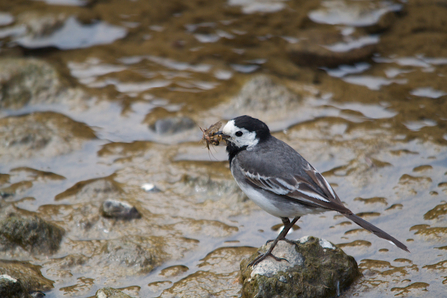
Pied wagtail collecting insects for its chicks © Tom Hibbert
The loss of insects has far-reaching consequences for entire ecosystems. Insects provide a food source for many birds, amphibians, bats and reptiles, whilst plants rely on insects for pollination.Cumbria Wildlife Trust
